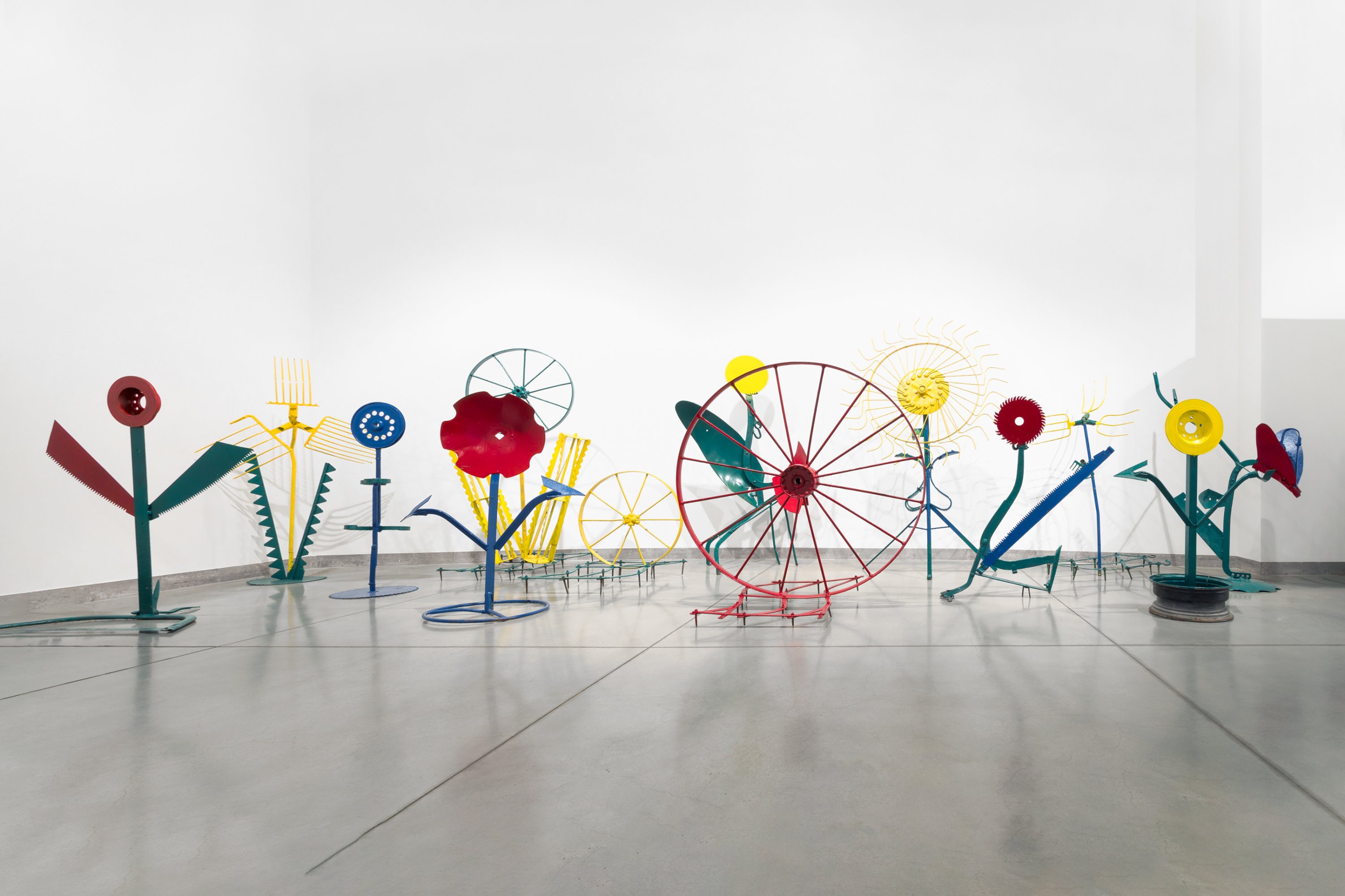Daniel Rycharski
b. 1986, Sierpc
Visual artist, activist. Graduate of the Academy of Fine Arts in Cracow and university lecturer. He is the creator of sculptural objects and installations, performances, videos and murals, which are often presented in public spaces or on the grounds of his home village of Kurówko. Central to Rycharski's work are themes related to the identity of the contemporary Polish countryside, Catholic faith and religion, and the LGBTQ+ community. He uses and transforms objects such as farm machinery parts and devotional items in his strongly symbolic works. His work also often takes the form of activities with local communities or marginalized groups. In 2021, a film inspired by Rycharski's life and work, All Our Fears, directed by Lukasz Ronduda and Lukasz Gutt, was produced. The artist lives and works in Kurówek and Krakow.
Winter Garden 2
FSP ING 0258 - 0270
The first Winter Garden was created in 2013 with the participation of Kurówko residents, who together with the artist created colorful metal flowers from parts of agricultural tools they no longer use. The colorful installation, reminiscent of Hasior's works, but also of vernacular, recycled ornaments-self-made from Polish gardens and backyards, stood directly in the field. For Rycharski, it was a kind of test of participatory action strategies and art in public space in a rural context. The Winter Garden attracted the attention of the Polish art world, but also of local scrap collectors. The salvaged flowers found their way first to Rycharski's yard and later to various art collections. Ten years later, small farms are almost gone, with industrial agriculture dominating. The remnants of tools that have begun to disappear from the village landscape are remnants of a peasant culture that is now a thing of the past. Winter Garden 2 is like a theatrical set, commemorating a reality that is no longer there. The harvester, pitchforks, plows, circular saws, angle saws, hand saws, rakes, hay rake, grain mill - tools that are no longer fit for work - are witnesses to the changes in rural identity, which is no longer closely tied to the land.
